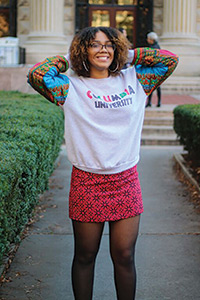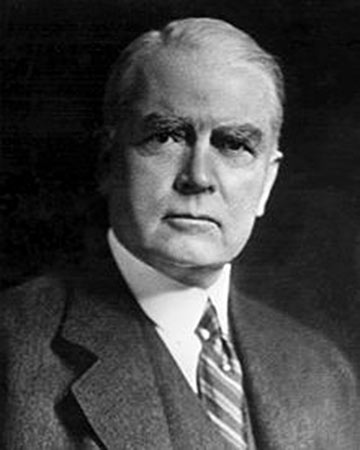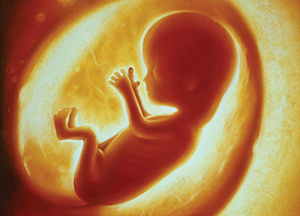Not Talk, But Power
By Dr. Chuck Hetzler
From cudayandnight.org

"First, we need to realize that the level of God's power in our lives can be greater than it is currently." Dr. Chuck Hetzler expands on this thought in a brief devotional posted Monday on Christian Union's new twice-daily video devotional site, Christian Union Day & Night...
Watch Now >
With Our Whole Heart, Soul, and Mind
by Justin MillsBut from there you will seek the Lord your God and you will find Him, if you search after Him with all your heart and with all your soul (Deuteronomy 4:29).
The Bible is full of such promises as this one in Deuteronomy 4:29, with a straightforward equation for intimacy with God. Unsurprisingly, these promises of seeking the Lord and finding Him include conditionality, such as the requirement that you seek after Him with all your heart and soul.
We know of God's holiness and the need, as the preacher says, to guard our steps when we go to the house of God (Ecclesiastes 5:1).
Columbia Sophomore Perseveres through Trials
by Catherine Elvy, Staff Writer A Columbia University undergraduate is sharing the lessons she gleaned from the trenches of extraordinary financial hardships to inspire participants in Christian Union's leadership development ministry on campus.
A Columbia University undergraduate is sharing the lessons she gleaned from the trenches of extraordinary financial hardships to inspire participants in Christian Union's leadership development ministry on campus.Migueyli Rivera '18 readily offers fellow students some of the spiritual and practical insights she gained as a strapped, often displaced teen in Lawrence, Massachusetts. "When I was going through homelessness, I really hung onto my faith," said Rivera.
Inter-Ministry Task Force Responds to Campus Tension
Editor's note: The following letter, reprinted from the Website www.loveforyale.com, was written by an inter-ministry task force at Yale in response to racial tension and protests on campus in the fall semester. The document was signed by over 100 Yale students and staff members from various ministries, including Athletes in Action, Living Water, Yale Christian Fellowship, Chi Alpha, Yale Graduate Christian Fellowship, Yale Faith and Action, Yale Students for Christ, Yale Gospel Choir, and United Church of Westville.
To Our Campus:
We are writing to you as a family of brothers and sisters in Christ. We have been deeply moved and affected by the pain experienced by many on our campus. We affirm that there is real, legitimate, and deep pain endured by communities of color here at Yale, not just as a result of recent events, but rather the result of lifelong experiences.
University Cites Program as Part of 150th Anniversary Celebration
By Catherine Elvy, Staff Writer As part of its sesquicentennial celebration, Cornell University recently spotlighted the institution's former training program for missionaries on furlough, including the course's ties to a global evangelist.
As part of its sesquicentennial celebration, Cornell University recently spotlighted the institution's former training program for missionaries on furlough, including the course's ties to a global evangelist.In November, the university's official newspaper paid tribute to the Cornell School for Missionaries, which operated from 1930 to 1964.
"Matt Bennett (Christian Union founder and CEO) contacted us and explained what Christian Union was doing. We felt a clear, immediate, strong call to become supporters," he said.
Dennis, Class of 1975, was an economics major at Princeton and a member of Cottage Club, one of the university's storied eating clubs.
Historian Notes Link between Prayer and Revival
by Catherine Elvy, Staff Writer
At their core, major manifestations from God involve prayer movements.
"Prayer movements have been fundamental to the advancement of Christ's kingdom as long as we can trace," says Bob Bakke, a church historian, author, and pastor.
"God is drawn to united prayer."
Historian Notes Link between Prayer and Revival
by Catherine Elvy, Staff Writer
At their core, major manifestations from God involve prayer movements.
"Prayer movements have been fundamental to the advancement of Christ's kingdom as long as we can trace," says Bob Bakke, a church historian, author, and pastor.
"God is drawn to united prayer."
Greetings from New York!
I’m not sure if you view this month in quite the same way as I do — a somewhat comical juxtaposition of the silliness/romantic celebration of Valentine's Day and the sobering start of the Lenten season when we consider the path of Christ as He approaches His crucifixion and resurrection. Certainly any serious celebration of the former would be rather empty without the tangible demonstration of the love of Christ shown for us in the latter.
 In a society that often values self-indulgence and entertainment over education and study, what should God’s workers do with the Word of Truth?
In a society that often values self-indulgence and entertainment over education and study, what should God’s workers do with the Word of Truth? This question was put forth by Gary G. Hoag in an article for Christian Leadership Alliance.
An Interview with Dr. Vincent Bacote
By Christian Union
From YouTube.com

“Faith ought to impact every facet of our lives and society.” Dr. Vincent Bacote, Associate Professor of Theology and the Director of Center for Applied Christian Ethics at Wheaton College, observed in a forum hosted by a ministry of Christian Union at Princeton. Bacote explored key considerations for Christians engaging pressing issues, whether on campus or in society more broadly...
Watch Video >
Recent graduates and professionals come together for a weekend of compelling speakers and dynamic worship.
April 1-3, 2016
Omni New Haven Hotel
New Haven, Connecticut
Experience two days of excellent plenary speakers and seminars addressing what it means to engage and transform culture as Christians in the marketplace. Vibrant worship and connections with others round out an enriching weekend. Learn more...
Our labors have a greater purpose that cannot be measured in dollars and cents.
 There is something about the weekend that we look forward to throughout the work week. Then, as Monday comes, we again settle into our quotidian work schedule and routine. Yet no matter how relaxing the weekend, how long the vacation, or how successful a completed task, we are never truly satisfied with this cycle. The paycheck and minor progress we secure hardly satiate our inner longing for something more. We desire fulfillment.
There is something about the weekend that we look forward to throughout the work week. Then, as Monday comes, we again settle into our quotidian work schedule and routine. Yet no matter how relaxing the weekend, how long the vacation, or how successful a completed task, we are never truly satisfied with this cycle. The paycheck and minor progress we secure hardly satiate our inner longing for something more. We desire fulfillment.Announcing the Beta-Release Launch of Christian Union Day and Night
By Christian Union
From cudayandnight.org

Christian Union has launched a beta version of its new initiative, Christian Union Day and Night. Watch morning and evening three-minute video devotionals from respected Christian leaders — for free...
Learn More >
New York City Christian Union Forum Speaker Dr. Robert Louis Wilken
Read more about the speaker...
Greetings from New York City!
There is much to relate in this letter, all of it encouraging. We seem to be in a season of great activity in a number of areas, all of which provide some wonderful opportunities for those of you in the New York area.
How the Gospel Gives Us True Rest
By Kevin Antlitz
From YouTube

Princeton Ministry Fellow Kevin Antlitz continues the "Why Good News?" series by revealing that the gospel invites us to deny the dangers of worldly success by engaging in purposeful, constructive rest –– the Sabbath...
Watch Now >
Article shows despair some residents experience
by Catherine Elvy, Staff Writer For medical residents in obstetrics-gynecology, abortion training can prompt deep soul searching.
For medical residents in obstetrics-gynecology, abortion training can prompt deep soul searching.That scenario was well illustrated when a Brown University clinical instructor and pro-choice advocate recently penned a disturbing article for a leading medical journal reflecting the divergent experiences of young doctors as they confronted the realities of abortion training.
Students Invited to Pick their Pronoun
According to an Associated Press Article, students registering at Harvard this fall were entitled to choose from various pronouns to describe themselves on their forms. The offerings included: he, she, and the "gender-neutral" options of they and ze.












